The eyes of new-car buyers may be on the recently launched third-generation Hyundai i10, but savvy city car customers would do well to check out its predecessor.
This dinky hatchback proves that basic transportation doesn’t have to mean basic transport. From around the £3000 mark, you can pick up a modern car that’s easy to drive in cut-and-thrust traffic but also offers the equipment and refined feel of something far bigger.
Power comes from one of two petrol engines. There’s a 65bhp 1.0-litre three-cylinder unit that’s just about satisfactory around town but, if you’ll ever be venturing out onto the open road, you’ll appreciate the greater vim and vigour offered by the 86bhp 1.2-litre four-cylinder. This is almost as economical, too. Stick with the five-speed manual gearbox because, although the four-speed slusher is the best automatic in the class, it’s still rather old-school.
Click here to buy your next used i10 from Autocar
The trim levels start with S, which is pretty meagre, with 14in steel wheels and electric front windows. Popular SE adds air conditioning, cruise control, Bluetooth and a DAB radio. Premium swaps the steelies for alloys and adds privacy glass and climate control. And Premium SE gets 15in alloys, rear parking sensors, heated front seats and a heated steering wheel.
There was also a special SE Blue trim that had only four seats (all other i10s have five) and rode on smaller wheels to improve its economy. Whichever version you end up going for, the i10 is one of the best in its class for refinement on all types of road. It has a comfortable ride and really is as quiet as a much larger and plusher car. The main issue is that its steering, which is really light for ease of use around town, feels vague at higher speeds and doesn’t inspire confidence on twisty roads.
The i10’s interior may be about as avant-garde as a custard cream, but it’s well put together, and the hard plastics do at least have a pleasing texture so as to avoid feeling cheap. The 7.0in touchscreen system that became standard on Premium SE trim with the 2016 facelift is easy to use and includes Apple CarPlay and Android Auto.
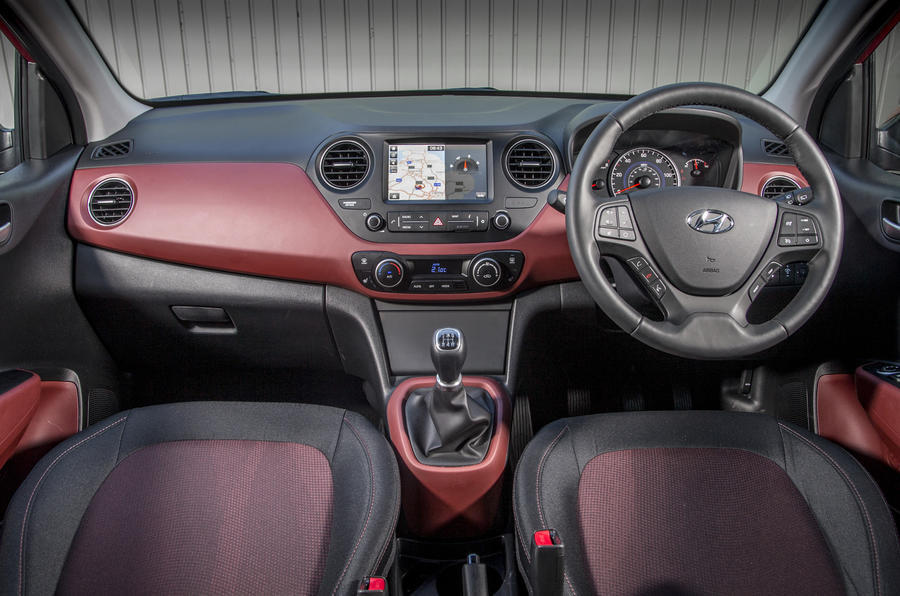
Tall people will be fine for head and leg room in the front, while rear passengers can stretch out (well, relatively speaking) in one of the roomiest city cars out there. The i10’s boot is a decent size, too, and you can chuck the seatbacks down almost flat if you ever need more capacity.
Just £3100 is the entry point for a 2014 1.0 SE, but budget between £4000 and £5000 and you’ll be able to pick up a good 2015 or 2016 car. There are lots more 1.0s at the lower end, while you’ll find a bigger selection of tidy 1.2 models in that middle price bracket. Anything above £6500 will net you a good 2018 car, often with low mileage.

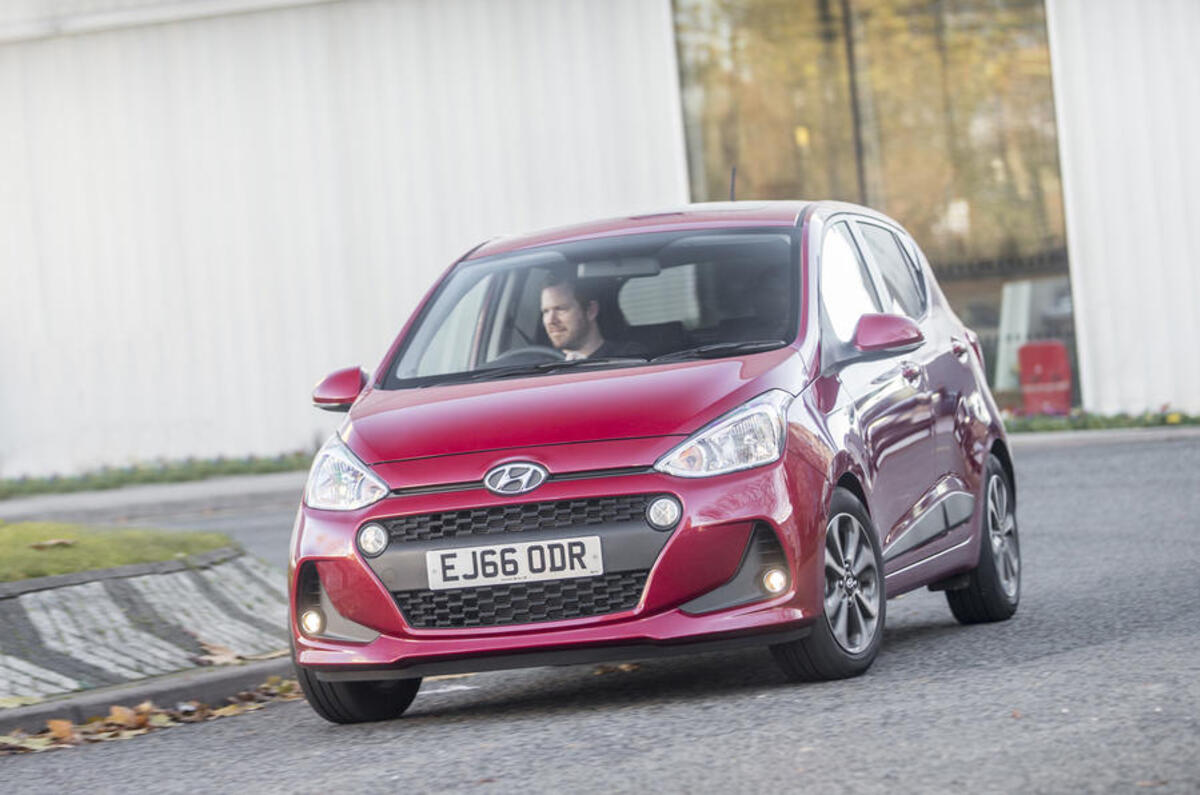


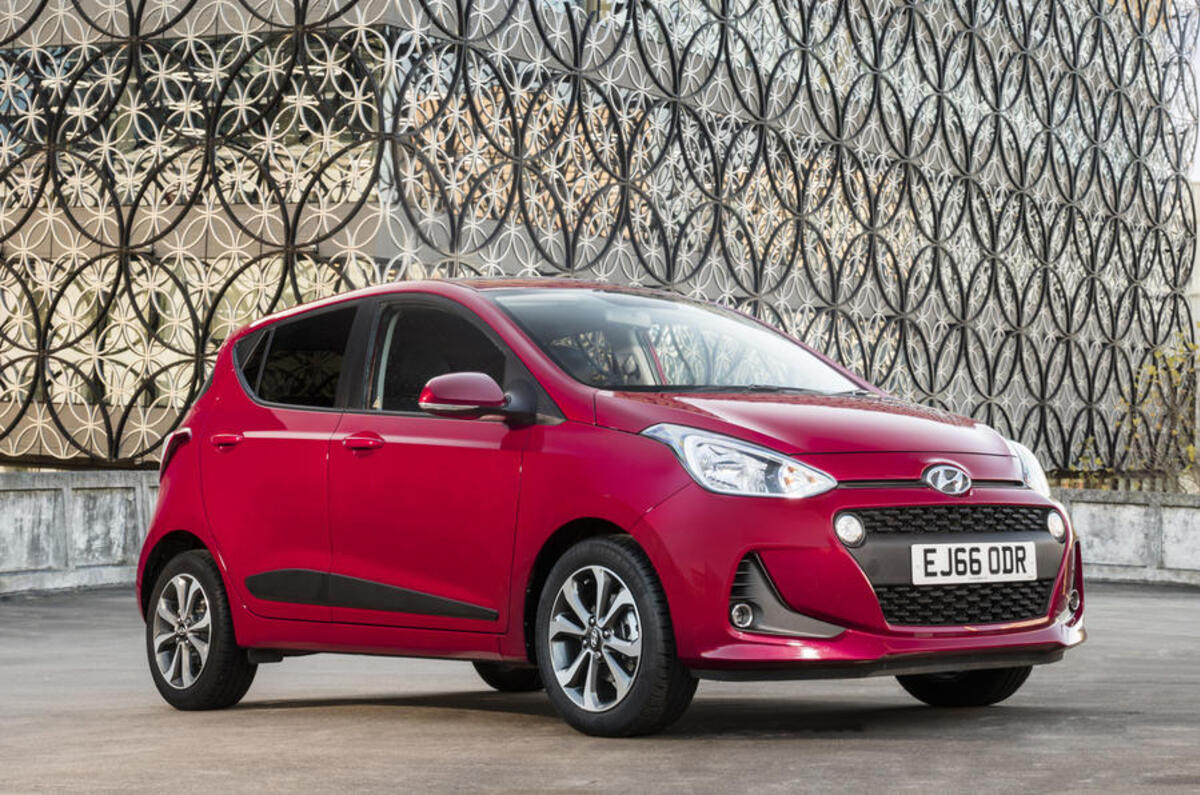
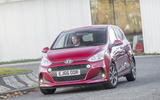

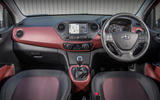
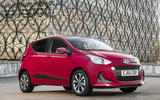

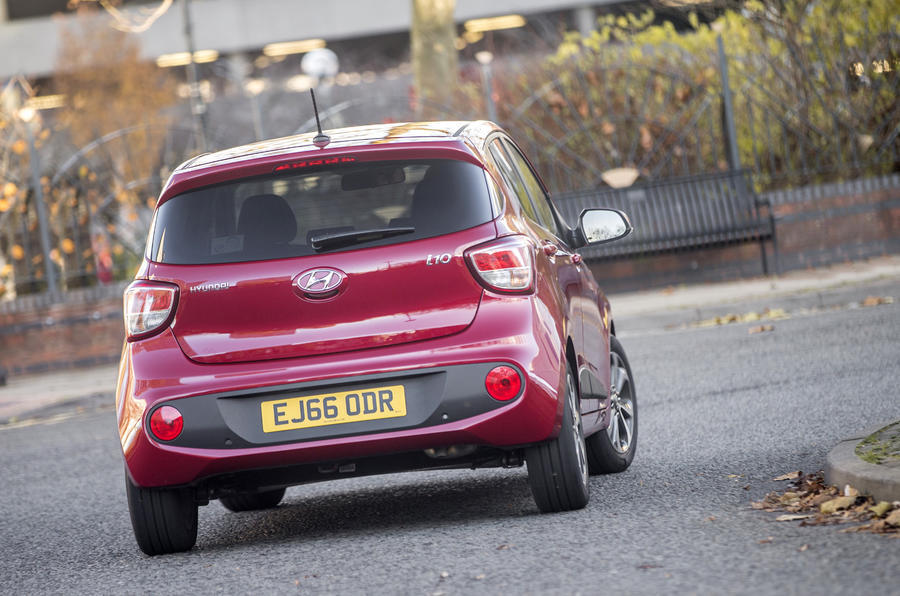

Add your comment